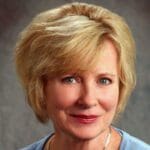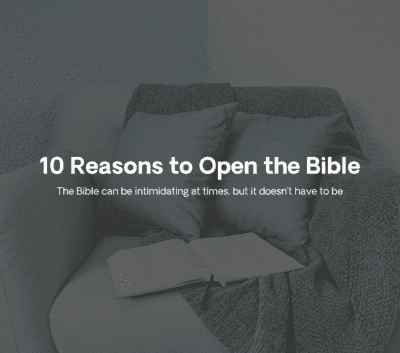More. Within each human spirit, a whispery voice urges, “More.” And the chronic itch that we can’t reach is more of what? Philosophers say more knowledge. Hedonists say more pleasure. Scientists say more answers. Merchandisers say more stuff.
King Solomon asked that question: More what? And he tried all those answers. His journey through the Wasteland of More What is recorded in Ecclesiastes. Because of his status—the wealthiest and wisest man of his era—he may have had more opportunities to “drink life to the lees,” as Tennyson put it, than any other person has been given.
But Solomon discovered that nothing his wealth could buy and nothing his wisdom could imagine satisfied the inner voice that continually cried, “More.” In fact, Solomon used the word vanity to categorize every pleasure and endeavor he tried. The Hebrew word is hebel which means “emptiness; something transitory and unsatisfactory.”
And throughout Ecclesiastes, as Solomon trudges through the Wasteland of More What, his conclusion follows him like an irksome companion:
I denied myself nothing my eyes desired; I refused my heart no pleasure…Yet when I surveyed all that my hands had done and what I had toiled to achieve, everything was meaningless, a chasing after the wind; nothing was gained under the sun. (Ecclesiastes 2:10-11, NIV)
“Everything was meaningless.” Have you ever collapsed into your recliner at the end of a day and come to a similar conclusion?
Why do I even try?
What’s the point?
I want to pack a suitcase and run away.
Everything I do is useless.
I can’t win.
In Mere Christianity, C. S. Lewis described the futile trek through the Wasteland of More What in this way:
Most people, if they had really learned to look into their own hearts, would know that they do want, and want acutely, something that cannot be had in this world. (Book III, ch. 10)
A few paragraphs later, he concludes: “If I find in myself a desire which no experience in this world can satisfy, the most probable explanation is that I was made for another world.”
And so we are. As surely as our physical bodies are designed to breathe in oxygen, our spiritual bodies are designed to breathe in the eternal. We grow only in the light of God’s presence; we flourish only in his sufficiency.
In Confessions, written more than 1600 years ago, Augustine said, “for You [God] have made us for Yourself and restless is our heart until it comes to rest in You” (p. 1). That necessity—the need for God—is what Solomon means in Ecclesiastes 3:11 when he says that God has “put eternity into man’s heart” (ESV). The Amplified Bible explains verse 11 this way: there is within us “a divinely implanted sense of purpose working through the ages which nothing under the sun, but God alone can satisfy” (classic edition).
“To the man who pleases him, God gives wisdom, knowledge, and happiness” Solomon wrote in Ecclesiastes 2:26. God said much the same thing himself through Asaph in Psalm 81: “Open your mouth wide and I will fill it” (v. 10 ESV).
Our English word rest comes from an Old English word, ræste, which signified both physical rest (sleep) and mental rest (peace). Solomon used the Hebrew word shalom to express the concept of physical, mental, emotional, and spiritual rest—complete well-being (Ecclesiastes 3:8). In Proverbs 3, he tells us that the only way to experience shalom is by placing full confidence in God and his commands:
Trust in the Lord with all your heart and lean not on your own understanding…Blessed are those who find wisdom, those who gain understanding…She [wisdom] is a tree of life to those who take hold of her; those who hold her fast will be blessed…Do not let wisdom and understanding out of your sight, preserve sound judgment and discretion; they will be life for you…Then you will go on your way in safety, and your foot will not stumble. When you lie down, you will not be afraid; when you lie down, your sleep will be sweet. (vv. 5, 13, 18, 21-22)
The Hebrew word translated wisdom in Proverbs and Ecclesiastes refers to the knowledge and experience necessary to live wisely and successfully according to God’s standards. In Knowing God, J. I. Packer defined wisdom as “the power to see and the inclination to choose the best and highest goal, together with the surest means of attaining it” (p. 90).
In Paul’s letter to the Colossians, he connected trust in God and the attainment of wisdom to Jesus. The apostle wanted the Colossians to “have the full riches of complete understanding, in order that they may know the mystery of God, namely, Christ, in whom are hidden all the treasures of wisdom and knowledge” (2:2-3 NIV).
When we find ourselves trudging through the Wasteland of More What, blinded by the sandstorm of consumerism, our souls parched by purposeless, we need to cry out for Jesus. He’s the only one who can lead us to the Oasis of Contentment, where we can drink his living water and feast on his satisfying truth.
Jesus calls to us, “Come to me …
all who are weary of the search for more,
all who are looking for purpose and meaning,
all who have been beaten down by the emptiness of accumulation,
all who have become jaded by disappointment in other people.
When we heed his voice, when we come, he pours his life-giving water over our blinded eyes, sunburned skins, and blistered feet. His words of assurance soothe our souls and satisfy our hearts: “I will give you rest” (Matthew 11:28).
Rest. Well-being. Shalom.
At one point or another, we all find ourselves wandering in the Wasteland of More What.
What we need is more of Jesus.
Respond to his call today. Stretch out your hand to him. Let him lead you to the Oasis of Contentment.


